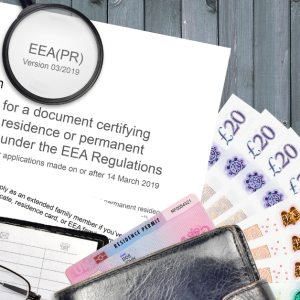Traveling can be an exciting adventure, but it also comes with its share of risks. Travel Insurance For UK Residents embarking on journeys, ensuring adequate protection through travel insurance is essential. From unexpected medical emergencies to trip cancellations, the right insurance policy can provide peace of mind and financial security. In this article, we’ll delve into the nuances of travel insurance tailored specifically for UK residents, exploring coverage options, key considerations, and practical tips to make informed decisions. Join us as we navigate through the intricacies of securing the right travel insurance policy for your needs.
Understanding the Importance of Travel Insurance For UK Residents

Travel insurance serves as a safety net, offering financial protection and assistance during unforeseen events while traveling. For UK residents, this coverage is particularly vital, given the potential risks involved in domestic and international travel. Let’s delve deeper into why travel insurance is essential:
a. Medical Emergencies: One of the primary reasons to invest in travel insurance is to cover medical emergencies. Even within the UK, medical treatment can be costly, and when abroad, expenses can escalate significantly. Travel insurance ensures that you’re covered for medical treatment, hospitalization, and emergency medical evacuation if necessary.
b. Trip Cancellation or Interruption: Plans can change unexpectedly due to various reasons such as illness, family emergencies, or adverse weather conditions. Travel insurance can reimburse you for non-refundable expenses like flight tickets, accommodation bookings, and tour packages if you need to cancel or cut short your trip.
c. Lost or Delayed Baggage: It’s not uncommon for luggage to be lost, damaged, or delayed during travel. Travel insurance provides coverage for the replacement of essential items and compensates for the inconvenience caused by baggage mishaps.
d. Personal Liability: Accidents can happen anywhere, and if you’re held responsible for causing injury to others or damaging property during your travels, travel insurance can cover your legal expenses and any compensation you may be required to pay.
e. Emergency Assistance Services: Beyond financial coverage, many travel insurance policies offer 24/7 emergency assistance services. These services can help you navigate unfamiliar healthcare systems, provide translation assistance, and offer support during crises such as natural disasters or political unrest.
Coverage Options for UK Residents
When it comes to travel insurance, UK residents have a variety of coverage options to choose from. Understanding these options is essential for selecting a policy that meets your specific needs. Let’s explore the various coverage options available:
a. Single Trip Insurance: Ideal for individuals or families planning a one-time vacation or short getaway, single trip insurance provides coverage for a specific trip duration, typically ranging from a few days to several weeks. It offers protection for trip cancellation, medical emergencies, baggage loss, and other common travel-related risks.
b. Annual Multi-Trip Insurance: If you’re a frequent traveler, annual multi-trip insurance can be a cost-effective option. This type of policy covers an unlimited number of trips within a year, with each trip typically capped at a specific duration (e.g., 30 or 60 days per trip). It provides continuous coverage for various travel-related eventualities throughout the year, making it convenient for those who travel frequently for business or leisure.
c. Backpacker or Long-Term Travel Insurance: Designed for travelers embarking on extended journeys, such as gap years, round-the-world trips, or extended sabbaticals, backpacker or long-term travel insurance offers comprehensive coverage for an extended period. It typically includes benefits such as medical coverage, trip cancellation, personal liability, and emergency assistance services tailored to the unique needs of long-term travelers.
d. Winter Sports or Adventure Travel Insurance: For those planning adventurous or sports-focused vacations, specialized insurance policies are available to cover activities such as skiing, snowboarding, mountaineering, scuba diving, and more. These policies offer additional coverage for equipment rental, emergency medical evacuation from remote locations, and specific risks associated with adventure sports.
e. Business Travel Insurance: Business travelers can opt for specialized insurance plans tailored to their needs, which may include coverage for business equipment, trip cancellation or interruption due to work-related reasons, and additional benefits such as travel concierge services to assist with itinerary planning and reservations.
f. Pre-Existing Medical Conditions Cover: Individuals with pre-existing medical conditions can opt for policies that provide coverage for their specific health needs. While coverage for pre-existing conditions may come with certain limitations and exclusions, it’s essential for travelers to disclose their medical history accurately to ensure they receive appropriate coverage and avoid potential claim denials.
Key Factors to Consider Before Purchasing
Before purchasing travel insurance For UK Residents , it’s essential to consider several key factors to ensure you select the most suitable policy for your needs. Here are some important considerations:
a. Destination and Activities: Assess the destination(s) you plan to visit and the activities you intend to engage in during your trip. Certain destinations may have higher healthcare costs or increased risks of natural disasters, while specific activities such as adventure sports may require specialized coverage. Choose a policy that provides adequate coverage for your planned activities and destinations.
b. Coverage Limits and Exclusions: Review the coverage limits and exclusions of the insurance policy carefully. Pay attention to the maximum coverage amounts for medical expenses, trip cancellation/interruption, baggage loss/delay, and other benefits. Additionally, understand any exclusions or limitations that may apply, such as pre-existing medical conditions, hazardous activities, or destinations with travel advisories.
c. Medical Coverage and Evacuation: Medical coverage is a crucial aspect of travel insurance, especially for international travel where healthcare costs can be exorbitant. Ensure that the policy provides sufficient coverage for medical treatment, hospitalization, and emergency medical evacuation, including repatriation to the UK if necessary. Verify whether the insurance company has a network of healthcare providers or assistance services in your destination country.
d. Trip Cancellation and Interruption: Evaluate the policy’s coverage for trip cancellation and interruption, considering factors such as illness, injury, death of a family member, or unforeseen circumstances that may force you to cancel or cut short your trip. Understand the conditions under which you can make a claim for trip cancellation or interruption and the documentation required to support your claim.
e. Deductibles and Co-payments: Take note of any deductibles or co-payments that apply to the insurance policy. A deductible is the amount you must pay out of pocket before the insurance coverage kicks in, while a co-payment is a percentage of the covered expenses that you’re responsible for. Consider whether you’re comfortable with the deductible/co-payment amounts and how they may affect your overall out-of-pocket expenses.
f. Policy Price and Value: Compare the prices and value offered by different insurance policies to ensure you’re getting the best deal. While price is an important factor, prioritize the coverage and benefits provided by the policy rather than solely focusing on the premium cost. Look for policies that offer comprehensive coverage at a reasonable price, taking into account your specific travel needs and budget.
g. Customer Reviews and Reputation: Research the insurance company’s reputation and read customer reviews to gauge their reliability, customer service quality, and claims handling process. Choose an insurer with a positive track record of customer satisfaction and prompt claims processing to ensure a smooth experience in case you need to make a claim during your travels.
Exploring Different Types of Travel Insurance For UK Residents Plans

When considering travel insurance, it’s essential to understand the various types of plans available to suit different travel needs and preferences. Here’s a breakdown of the different types of travel insurance plans:
a. Comprehensive Travel Insurance:
- Comprehensive travel insurance provides broad coverage for a range of potential risks, including trip cancellation, medical emergencies, baggage loss, and travel delays.
- This type of plan offers peace of mind for travelers seeking extensive protection during their trip.
b. Medical Travel Insurance:
- Medical travel insurance focuses primarily on covering medical emergencies and related expenses during travel.
- It’s essential for travelers concerned about unexpected illnesses or injuries while abroad, ensuring they have access to medical treatment without worrying about exorbitant costs.
c. Trip Cancellation/Interruption Insurance:
- Trip cancellation/interruption insurance reimburses travelers for non-refundable trip expenses if they need to cancel or cut short their trip due to covered reasons such as illness, injury, or unforeseen circumstances.
- This type of insurance provides financial protection against potential losses associated with trip cancellations or interruptions.
d. Baggage and Personal Belongings Insurance:
- Baggage and personal belongings insurance covers the loss, theft, or damage of luggage and personal items during travel.
- It’s particularly valuable for travelers carrying valuable items or equipment, ensuring they receive compensation for their lost or damaged belongings.
e. Emergency Evacuation Insurance:
- Emergency evacuation insurance covers the cost of emergency medical evacuation to the nearest appropriate medical facility in the event of a medical emergency or injury during travel.
- This type of insurance is crucial for travelers visiting remote or underdeveloped areas where access to adequate medical care may be limited.
f. Rental Car Insurance:
- Rental car insurance provides coverage for rental vehicles in case of accidents, theft, or damage during the rental period.
- It’s essential for travelers planning to rent a car at their destination, offering protection and peace of mind while driving in unfamiliar territories.
g. Adventure or Hazardous Activities Insurance:
- Adventure or hazardous activities insurance covers travelers participating in high-risk or adventure sports and activities such as skiing, scuba diving, or mountaineering.
- This type of insurance offers specialized coverage tailored to the unique risks associated with adventurous pursuits, ensuring travelers are adequately protected during their adventures.
Travel Insurance For UK Residents Comparing Policies and Providers
Choosing the right travel insurance policy involves comparing various policies and providers to find the best coverage and value for your needs. Here’s a step-by-step guide to comparing policies and providers effectively:
a. Assess Your Needs: Start by assessing your specific travel needs and priorities. Consider factors such as destination, trip duration, planned activities, and any pre-existing medical conditions that may require coverage. Understanding your needs will help you narrow down the options and focus on policies that offer the most relevant coverage.
b. Review Coverage Options: Thoroughly review the coverage options offered by different insurance policies. Pay attention to key features such as medical coverage limits, coverage for trip cancellation/interruption, baggage loss/theft coverage, emergency evacuation benefits, and any additional riders or add-ons available.
c. Compare Costs: Compare the costs of different insurance policies, taking into account premiums, deductibles, coverage limits, and any applicable fees or charges. Keep in mind that while cost is an important factor, it shouldn’t be the sole determinant of your decision. Ensure that the policy offers adequate coverage for your needs at a reasonable price.
d. Check Policy Exclusions and Limitations: Carefully review the policy exclusions and limitations to understand what is not covered by the insurance. Common exclusions may include pre-existing medical conditions, high-risk activities, and specific destinations or regions with travel advisories. Make sure you’re aware of any limitations that may affect your coverage.
e. Research Insurance Providers: Research the reputation and reliability of insurance providers offering the policies you’re considering. Look for reviews and ratings from other travelers, check if the provider is accredited by reputable organizations, and verify their claims processing and customer support procedures. Opt for well-established providers with a track record of excellent customer service and prompt claims settlement.
f. Consider Additional Benefits: Some insurance policies may offer additional benefits or perks, such as 24/7 emergency assistance services, travel concierge services, or coverage for rental car insurance excess. Consider whether these additional benefits are valuable to you and factor them into your decision-making process.
g. Read the Fine Print: Before purchasing a policy, carefully read the fine print, including the policy terms and conditions, to understand the coverage details, exclusions, and requirements. Pay attention to any limitations or restrictions that may affect your coverage eligibility or claims processing.
Tailoring Coverage to Your Travel Needs
Tailoring your travel insurance coverage to your specific needs ensures that you’re adequately protected during your journey. Here’s how to customize your coverage effectively:
a. Destination-Specific Coverage: Consider the unique risks associated with your destination and tailor your coverage accordingly. For example, if you’re traveling to a remote or high-risk area, ensure your policy includes coverage for emergency medical evacuation and medical treatment in foreign hospitals.
b. Trip Duration: Adjust your coverage based on the duration of your trip. If you’re planning a short weekend getaway, a single trip insurance policy may suffice. However, for longer trips or frequent travel throughout the year, an annual multi-trip insurance policy might be more cost-effective.
c. Activities and Adventures: If you plan to engage in adventurous activities or sports during your trip, make sure your policy includes coverage for these activities. Many standard travel insurance policies exclude coverage for high-risk activities such as skiing, scuba diving, or mountaineering, so consider adding specialized coverage or purchasing a separate adventure sports insurance policy.
d. Medical Needs: If you have pre-existing medical conditions, ensure your travel insurance policy provides adequate coverage for your specific health needs. Disclose your medical history accurately when purchasing insurance and consider opting for a policy that offers coverage for pre-existing conditions, even if it comes with certain limitations or exclusions.
e. Value of Belongings: Assess the value of your belongings and adjust your baggage and personal belongings coverage accordingly. If you’re traveling with expensive electronics, jewelry, or other valuable items, make sure your policy provides sufficient coverage for loss, theft, or damage to these items.
f. Trip Cost: Calculate the total cost of your trip, including transportation, accommodation, activities, and other expenses, and ensure your policy’s trip cancellation/interruption coverage matches or exceeds this amount. This ensures you’re adequately reimbursed for non-refundable expenses if you need to cancel or cut short your trip due to covered reasons.
g. Budget Considerations: Balance your coverage needs with your budget constraints. While comprehensive coverage offers maximum protection, it may come with higher premiums. Evaluate your priorities and choose a policy that provides the best value for your budget while still meeting your essential coverage needs.
h. Exclusions and Limitations: Understand the exclusions and limitations of your chosen policy and consider purchasing additional coverage or riders to fill any gaps in protection. Review the policy terms and conditions carefully to ensure you’re aware of any restrictions that may affect your coverage eligibility or claims processing.
Tips for Finding Affordable Premiums

Securing travel insurance is crucial, but it doesn’t have to break the bank. Here are some practical tips for finding affordable premiums without compromising on coverage:
a. Compare Multiple Quotes: Don’t settle for the first insurance quote you receive. Shop around and compare quotes from multiple insurance providers to find the most competitive rates. Online comparison tools can help streamline this process and save you time.
b. Opt for Basic Coverage: Assess your travel needs and consider opting for basic coverage that includes essential benefits such as medical coverage, trip cancellation/interruption, and baggage loss/theft. Avoid unnecessary add-ons or riders that may increase premiums without adding significant value.
c. Choose a Higher Deductible: Consider choosing a higher deductible, which is the amount you pay out of pocket before your insurance coverage kicks in. A higher deductible typically results in lower premiums, but be sure you can afford to cover the deductible in case of a claim.
d. Bundle Policies: If you’re already insured with a particular provider for other types of insurance, such as home or auto insurance, inquire about bundling your travel insurance policy with your existing policies. Many insurers offer discounts for bundling multiple policies.
e. Look for Discounts: Keep an eye out for discounts or promotional offers that can help lower your premiums. Some insurers offer discounts for purchasing online, being a member of certain organizations, or having a good claims history.
f. Consider Annual Policies: If you travel frequently throughout the year, consider purchasing an annual multi-trip insurance policy instead of separate single trip policies for each trip. Annual policies can offer cost savings for frequent travelers.
g. Review Coverage Limits: Evaluate the coverage limits of different policies and consider whether you can afford to reduce certain limits to lower premiums. For example, if you don’t anticipate needing high coverage limits for medical expenses, opting for a lower coverage limit may help reduce premiums.
h. Avoid Over-Insuring: Assess your coverage needs realistically and avoid over-insuring by purchasing coverage you don’t need. Tailor your coverage to your specific travel needs to avoid paying for unnecessary benefits.
i. Maintain a Healthy Lifestyle: Some insurers offer discounts or lower premiums to policyholders who maintain a healthy lifestyle. Consider factors such as non-smoking status, regular exercise, and healthy eating habits when seeking insurance quotes.
